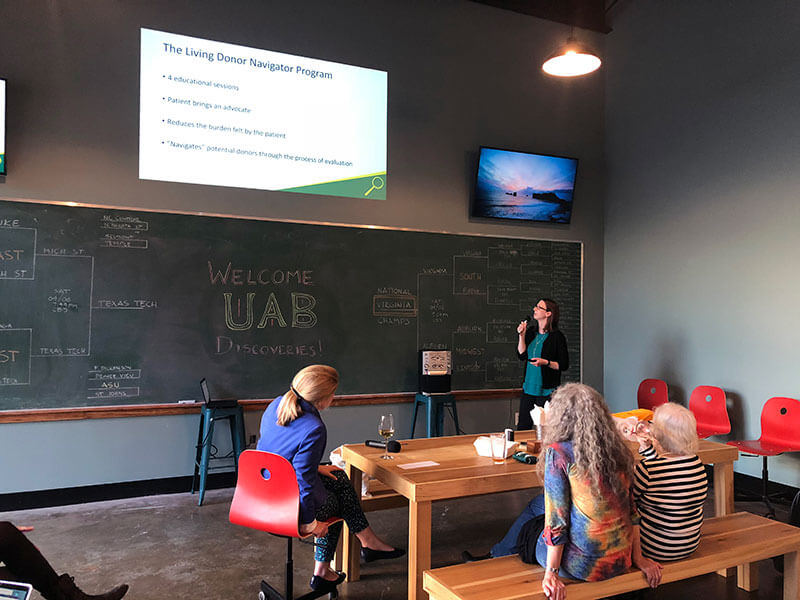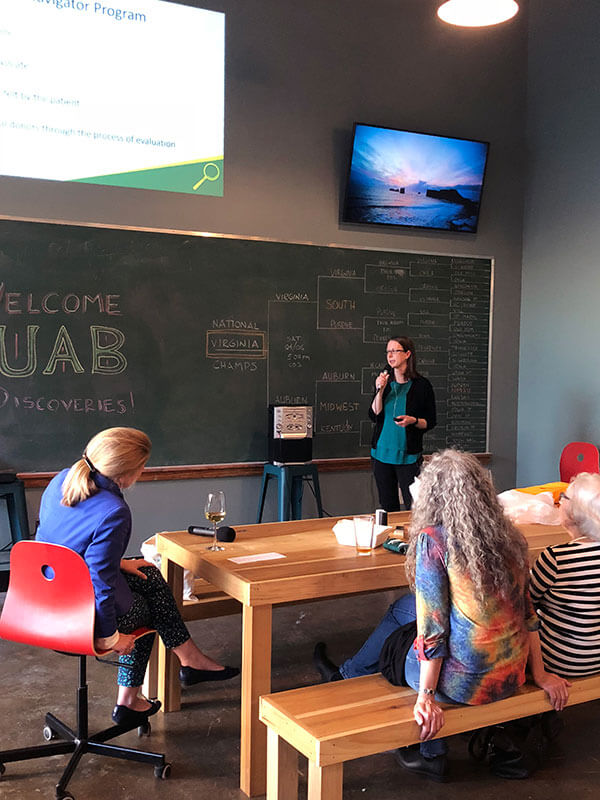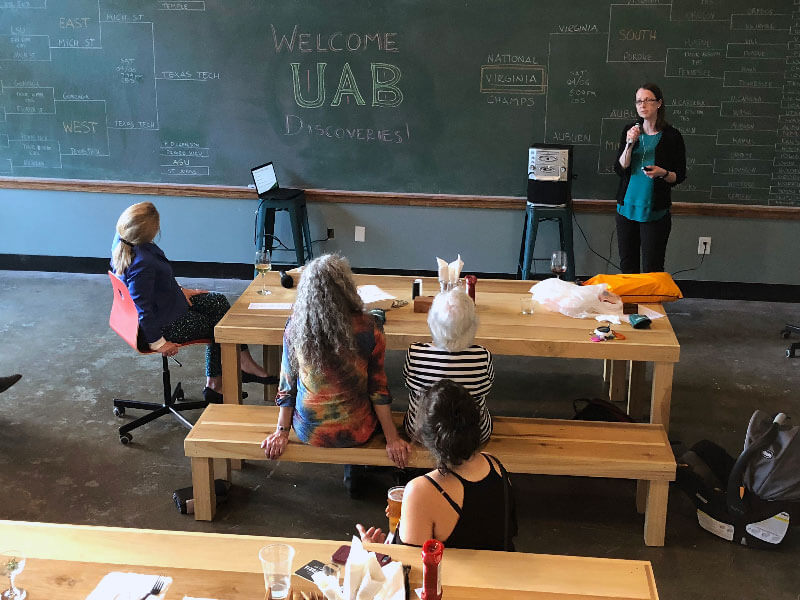Think about the last time you asked your friend for a favor. Depending on what you were asking for, you may have felt a bit awkward, and it may have been a hard ask. Now, imagine asking for not just a favor, but something bigger. Imagine asking your friend to donate you a kidney because you have kidney failure and cannot survive without dialysis or a transplant. It is a huge ask, but also a lifesaving gift.
 Currently, there are 100,000 patients in the United States awaiting a kidney donation. Patients remain on dialysis for years, waiting to move up on the organ waiting list for the small number of kidneys from deceased donors. Thus, an important source of donations comes from living donors, which could be spouses, family, friends or even strangers. The University of Alabama at Birmingham (UAB) created a program – the Living Donor Navigator Program – to help patients navigate the challenging process of identifying a living donor and undergoing transplant, and UAB doctoral student Rhiannon Reed’s research has focused on exploring the effectiveness and impact of the program.
Currently, there are 100,000 patients in the United States awaiting a kidney donation. Patients remain on dialysis for years, waiting to move up on the organ waiting list for the small number of kidneys from deceased donors. Thus, an important source of donations comes from living donors, which could be spouses, family, friends or even strangers. The University of Alabama at Birmingham (UAB) created a program – the Living Donor Navigator Program – to help patients navigate the challenging process of identifying a living donor and undergoing transplant, and UAB doctoral student Rhiannon Reed’s research has focused on exploring the effectiveness and impact of the program.
In mid-2017, UAB launched the Living Donor Navigator Program. In this program, patients attend four educational sessions with an “advocate,” which is usually a partner, family member or friend. At these sessions, patients learn about the transplant process and receive specialized training in how to ask for a kidney donation. Advocates support the patient in initiating conversations about kidney donation and spreading awareness. The ultimate goal is to help patients identify a living donor and to reduce the burden of “making the ask” for a kidney. The hospital indicated that the program would be considered a success if it resulted in four living donations in the first year. In fact, the program exceeded these expectations: within the first year alone, there were seven living kidney donations.
Reed, a doctoral student at UAB in the department of Healthcare Organization & Policy, said previous programs have largely focused on guiding the patient through the transplant process, while less support is provided for donors. In fact, donors may have their own fears and questions about undergoing transplant that they are not comfortable voicing. They may also struggle to keep up with the paperwork and appointments necessary for kidney donation. A unique component of UAB’s program is that potential donors are paired with a “navigator,” which is a UAB employee who supports donors through the transplant process.
“So, these donors get attention from a navigator, who helps make sure they can make it to their appointments, answers any questions that they don’t feel comfortable asking of their doctor and helps them get to the end-point of donating their kidney,” Reed said.
 As part of her research, Reed ran focus groups with patients, advocates and donors that participated in the UAB Living Donor Navigator Program. She spoke about what the participants saw as the most helpful features of the program. According to Reed, an important component of the program was providing specific training on how to “make the ask” for a kidney donation.
As part of her research, Reed ran focus groups with patients, advocates and donors that participated in the UAB Living Donor Navigator Program. She spoke about what the participants saw as the most helpful features of the program. According to Reed, an important component of the program was providing specific training on how to “make the ask” for a kidney donation.
“Advocates agreed that it was very important to understand how to speak with someone about living organ donation without coercing the person into being evaluated to be a donor,” Reed said.
Another important feature of this program was that patients and advocates learned how to challenge common misconceptions about living donation that often come up in conversations with potential donors.
“One of the most surprising things that I learned was that people had no idea that if you are a kidney donor and you yourself go on to develop kidney disease, you go right to the top of the list,” she said.
Understanding these misconceptions helps patients and advocates be more effective in conversations about donation.
Finally, Reed found that the program provided an unexpected form of support group for the advocates that attended.
“The advocates agreed – and this was the most unexpected finding – that this was an unintentional support group,” Reed said. “They are going through this process with their loved one, watching them suffer on dialysis and really seeing their need for a transplant. But no one is asking them about how they are doing, and if they are getting the support they need to be the best caregiver for their loved one.”
Advocates said the program sessions provided a safe space to share what they were feeling during this process, and this provided them support.
The Living Donor Navigator Program is an ongoing program at UAB that is available to patients free of charge. For more information, visit the program website.
